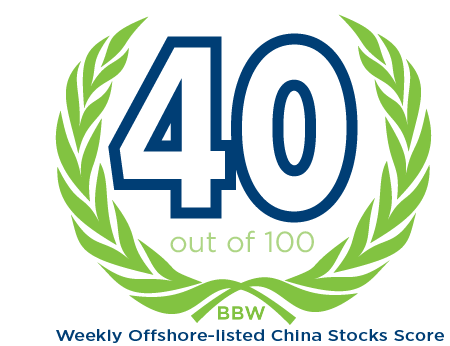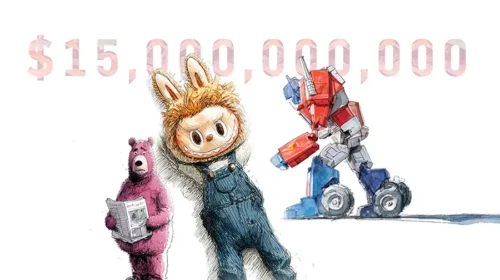CHINA BULLETIN: Keep Your Supply Chains in China, Beijing Says


In this week’s issue supply chain mania, a solar shakedown and the world’s first bird’s nest stock. On a scale of 1 to 100, we give the week a 40 for offshore-listed China stocks.
Doug Young, Editor in Chief
You can sign up to get China Bulletin weekly in your inbox.
MACRO
Keep Your Supply Chains in China, Beijing Says
Anyone trying to read the latest Chinese tea leaves need look no further than the newest and greatest Beijing trade show. This time it was the first edition of the China International Supply Chain Expo last week that signaled where central leaders’ latest priorities lie. At the event’s opening, Premier Li Qiang said China wants to strengthen its supply chains with all countries.
Not to sound too cynical, but there’s a reason no other country has ever held an exhibition dedicated to supply chains, namely because it’s a general term that applies to any industry, and its actual meaning varies quite widely for each industry. Thus, the event can only be seen as China’s way of trying to stem the flow of companies moving their supply chains to other countries.
PMIs Mixed, as GDP Growth Target Looks Reachable
Moving on to more mundane economic indicators, the latest purchasing managers index (PMI) readings for November were mixed. On the one hand, the official PMI fell to 49.4, marking a second month in contraction, defined as any reading below 50. But the Caixin PMI unexpectedly rose to 50.7, indicating expansion, from a 49.5 reading in October.
Meantime, central bank chief Pan Gongsheng was quoted saying China is expected to hit its 5% growth target for this year. The mixed PMI readings seem to show that perhaps all the recent economic stimulus is having some effect. Meantime, reaching the GDP target seems like almost a no-brainer, since China rarely misses such centrally set targets.
China Stocks Sag Amid Quarterly Earnings Barrage
Last week was notable for the crush of third-quarter earnings reports from offshore-listed Chinese companies, most showing just how weak China’s economy is. That showed up in the broader market indices, with the Hang Seng China Enterprises Index down 4.6% during the week, while the iShares MSCI China ETF lost 3.1%, and the broader Hang Seng Index fell 4.2%.
As we head into December, 2023 is shaping up as a year that many of the companies we follow would probably rather forget. All three indices we track are down about 20% for the year, which got off to a strong start on positive regulatory and economic signs. But the rally quickly ran out of fuel around April amid growing signs of a slowing economy.

Industry
Walmart, Apple Shift Supply Chains from China
We started this week with Beijing’s call to foreign companies to keep their supply chains in China. Two other stories show why it’s doing that. One report shows that global retailing giant Walmart now gets “just” 60% of its wares from China, down from 80% in 2018. The other says Apple’s main production partner Hon Hai is planning to invest a further $1.6 billion in India.
India has probably been the biggest beneficiary of the ongoing “de-risking” process, which is seeing foreign companies diversify their global supply chains after many were badly burned during the pandemic by too much reliance on China. Other big beneficiaries include Vietnam and Thailand.
Solar Shakedown Builds
After booming earlier this year as the cost of their main ingredient plummeted, solar panel makers are now feeling their own pain as prices for their products tumble as well due to a global supply glut. The latest to comment on the trend is the chairman of leading panel maker Trina, who says no one is earning profits right now and the current situation is unsustainable.
This is what happens when China comes to dominate this kind of emerging industry, often resulting in cutthroat competition where no one cares about anything but gaining market share. We’re seeing similar bloody competition right now in the electric vehicle space, and saw similar things a few years ago in smartphones – all sectors now largely dominated by China.
Corruption Crackdown Sweeps Through ICBC
We try to avoid too many stories on corruption, as crackdowns on graft are a dime-a-dozen these days. But the latest report on that front looks worth mentioning, as it says an ongoing sweep has netted quite a few big fish at ICBC, the nation’s top bank. The report points out that the ICBC sweep is part of a larger crackdown consuming China’s financial sector.
We’ve seen other sectors targeted for similar cleanups, but this one looks a bit larger than those, probably because the financial sector is so huge and is dominated by state-run entities. The danger, however, is that such turmoil could put further pressure on the sector just as it’s having to deal with a wide range of other crises related to China’s economic slowdown.

Company
ByteDance Says Goodbye to Gaming
We’ve written often about how difficult China’s gaming sector is due to intense competition and heavy regulatory oversight. Now, the latest sign of how tough things are is coming from TikTok parent ByteDance, which has decided to shutter its Nuverse gaming business and eventually leave the mainstream online gaming sector altogether.
While it’s one thing for smaller companies to throw in the towel, it’s quite another when a giant like ByteDance with huge amounts of cash and related experience makes such a decision. At the end of the day, the company probably decided it would have to spend huge sums to carve out a place in the sector, and that its money would be better spent elsewhere.
Evergrande’s Looming Demise?
Embattled developer Evergrande has been out of the headlines these last few weeks, but that doesn’t mean it’s on the road to recovery. A new Reuters report says the company is racing to get its bondholders to accept an offshore debt-restructuring plan before a Hong Kong court hearing on Monday. Failure to win such approval could potentially trigger a liquidation of the company.
All this sounds a bit extreme to us, as Evergrande has shown a remarkable ability to keep kicking the can down the road each time its demise looked imminent. But people were probably saying the same thing about Lehman Bros. for months or even years before its final implosion in 2007 that kicked off the global financial crisis.
Shein Hopes to Shine on Wall Street
In the latest signal that the two-year winter for Chinese IPOs on Wall Street is nearing an end, a new report last week said online fast fashion sensation Shein has made its first confidential filing for a New York listing that could value the company at up to $90 billion. Such a listing would probably raise $10 billion or more, potentially becoming one of the biggest in New York next year.
Shein started out in China, but has moved to Singapore in a bid to become more global. Still, the vast majority of its supply chain is in China, where it quickly produces the latest clothing using a vast network of workshops. While Shein is technically not a China company anymore, its IPO application still seems to signal that big Chinese listings may finally be returning to Wall Street.
AND FROM THE PAGES OF BAMBOO WORKS
| East Buy Casts Off Educational Roots Last week we brought you the story of East Buy, whose case nicely shows there is life for entrepreneurial companies after China’s education crackdown two years ago. This company was once the racy online arm of education giant New Oriental, but got taken down with its parent when China banned most of its services overnight back in 2021. East Buy has reinvented itself as an e-commerce company, and drew a symbolic line under its past by announcing it would sell the remnants of its tutoring business to its parent for $208 million, and also raise a similar amount by selling more shares to its parent. All of this has some slightly incestuous overtones, but ultimately should help to position East Buy as a pure e-commerce play. |
| Bird’s Nest, Anyone? Most westerners, and probably many Chinese, aren’t big believers in the health benefits of bird’s nests. But that doesn’t mean that western investors can’t benefit from the food’s popularity. Last week we brought you the colorful story of Yan Palace, a leading maker of various products that use bird’s nest as an ingredient, as it gets set to make a Hong Kong IPO. We haven’t done extensive research on the subject, but we’d be willing to wager this could be the world’s first exclusively “bird’s nest stock,” for anyone who believes in this product. Our report also contains some fun history on bird’s nests in China, including the product’s original importation by famous explorer Zheng He during the Ming Dynasty. |






